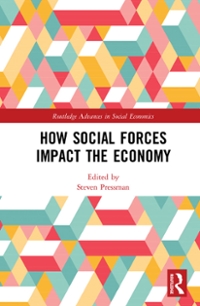Question
I n general, what happens when the government intervenes? Is it necessary a bad thing? Outline the justifications used for government intervention - e.g., externalities,
In general, what happens when the government intervenes? Is it necessary a bad thing? Outline the justifications used for government intervention - e.g., externalities, monopoly power, asymmetric information, and public goods. Define each. Discuss your thoughts on these "justified" interventions.
In this case, being a renewable energy initiative, the government can aid the project with subsidies to better influence the projects success. However, if the firm cannot find a win-win situation with environmentalists it could kill the project and potential cost savings. This case would show a positive externality to implement clean energy. However, waste management is a monopoly where the negotiation of lower costs and clean energy may outweigh a few acres of protected flowers. With waste management seeing the potential costs savings with clean energy and making regulatory easier to get through, they would be able to raise the prices of operation in order to get the land they need.
How about my example? Was this a 'justified' intervention? It clearly limited the market for super clean energy. Make sure to consider the governments side. Why would they kill a project like this? What's the gain? Is it economic? Social? Political?
There are good and bad sides to this situation for the government. In one lens, aiding the destruction of protected flowers will get a lot of backlash from the environmentalists. Especially being a tax credit from the people. One the plus side, the government can utilize this as a political gain to show their efforts in providing clean energy. It's also unlikely that taxes will go down just because of this improvement, meaning the government is able to utilize that money in other areas they desire to fund. Building on the political point, implementing such renewable energy sources likely qualifies them for a financial kickback.
Now, put on your critical thinking economist caps. Can you come up with an alternative solution that could have saved the project AND satisfied the concerns of the government & the environmentalists?
Assuming in this case we have time on our hands. Having time, the government can position the problem at hand (the protected flowers) by taking initiative and creating a 'sanctioned land' for this flower and butterfly habituate. Obviously not creating it where it's optimal to have this electric plant.
After gaining trust from the environmentalist groups and satisfying their desire to protect endangered species, it can allow the electric company to build it's plan to support the GCS. Promote the butterfly sanctuary land and renewable clean energy for the people while making money from tax savings and kickbacks.
Elaborate please, I'm not understanding all the way.
Step by Step Solution
There are 3 Steps involved in it
Step: 1

Get Instant Access to Expert-Tailored Solutions
See step-by-step solutions with expert insights and AI powered tools for academic success
Step: 2

Step: 3

Ace Your Homework with AI
Get the answers you need in no time with our AI-driven, step-by-step assistance
Get Started


